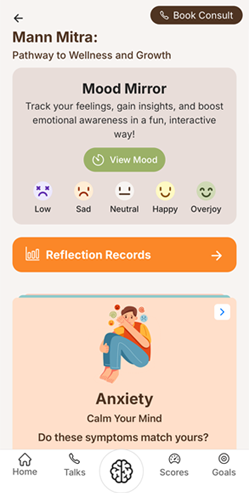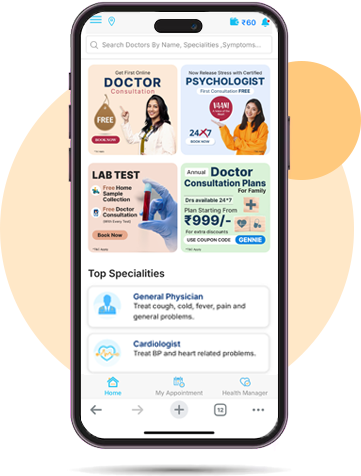Get quality care to
overcome generalised
Self-Esteem Disorder
It's okay to feel like you're losing control - but you
don't have to
go through this alone. Let us help you.

Symptoms of
Self-Esteem Disorder
What is self-esteem?
Self-esteem expert Morris Rosenberg describes self-esteem as an individual's overall attitude toward themselves, which can be positive or negative (1965). Self-esteem is about the subjective evaluation of one's worth or value. It's the overall opinion you have about yourself and your abilities. It involves feelings and thoughts about oneself, including how competent, worthy, and lovable you perceive yourself to be.
Self-esteem influences various aspects of your life, including relationships, academic or professional performance, and overall well-being. Healthy self-esteem generally involves having a balanced and realistic view of yourself. In contrast, low self-esteem can lead to feelings of inadequacy, self-doubt, and even sadness with low mood.

1. Emotional Symptoms:
- 1. Persistent Self-Doubt
- 2. Feelings of Worthlessness
- 3. Excessive Fear of Failure
- 4. Negative Self-Talk
- 5. Mood Swings
2. Behavioural Symptoms
- 1. Social Withdrawal
- 2. Overcompensating
- 3. People-Pleasing
- 4. Procrastination
- 5. Difficulty Accepting Positive Feedback
3. Physical Symptoms
- 1. Lethargy
- 2. Stress and Worry
- Academic Pressure
- Social Comparisons
- Bullying
- Family Expectations
- Negative Self-Talk
Ways to boost self-esteem
- Self-Compassion: When things go wrong, practice being kind to yourself.
- Setting Goals: Breaking big goals into smaller ones boosts confidence.
- Building Skills: Learning new things makes you feel accomplished.
- Exercise: Regular activity lifts mood and self-esteem.
- Support: Surrounding yourself with encouraging people helps.
- Gratitude: Focus on the good things in life to feel better.
- Assertiveness: Speak up for yourself respectfully.
- Mindfulness: Being aware of your thoughts helps you accept yourself better.
- Help Others: Helping others and being kind to others can make you feel good, too.
- Write Things Down: Keeping a journal can help you understand yourself better.
- Talk to Someone: If you're struggling, don't hesitate to seek help from a counselor or therapist.

Unsure about your symptoms?
Take our Self-Esteem test and get an instant report to understand your symptoms.
Try the Health Gennie approach to Generalised
Anxiety Disorder treatment
You’ve taken the first step in getting help. Now, let us partner with you on your mental health journey. Based on
our clinical expertise, decades of experience, and the latest science in anxiety care, we have created a
programmatic approach to drive real change and improvement over time.
-


Talk to a therapist
Try the Health Gennie a pproach to Anxiety treatment
-


Talk to a therapist
Try the Health Gennie a pproach to Anxiety treatment
-


Talk to a therapist
Try the Health Gennie a pproach to Anxiety treatment
-


Talk to a therapist
Try the Health Gennie a pproach to Anxiety treatment
Self-Esteem Disorder
treatment option
We’re here to support you with whatever you might need on your mental health journey.
Let an Health Gennie’s therapist
help you
- Choose from our qualified experts who are specifically trained in Self-Esteem-focussed treatment approaches.
- Access therapist-recommended self-care exercises to work on your concerns outside of sessions, too.
- Monitor how you are doing and identify changes in the way you think, feel and act over time.

Access personalised self-care with the
Health Gennie App
- Get a personalised Self-Esteem self-care plan with 500+ activities & learn to cope with uncontrollable worry.
- Talk to Allie, our 24*7 chatbot, when you’re feeling overwhelmed by feelings of Self-Esteem or worry.
- Use our goal tracker & mood tracker to assess your progress and find emotional balance.

Download The App and get First Consultation FREE

If you didn't find what you were looking for,
please reach out to us at support@healthgennie.com or +91
8929920932. We're here for you - for anything you might need.








